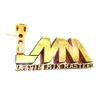Ragga Live Radio Stations
Radio Stations
Choose a Genre
Ragga: The Pulse of Jamaican Rebellion and Global Rhythms
Emerging from the vibrant streets of Jamaica in the 1980s, ragga is a music genre that continues to influence and inspire artists worldwide. A subgenre of dancehall, itself a variant of reggae, ragga brings together the traditional sounds of Jamaican music with cutting-edge electronic beats, synthesizers, and drum machines. Known for its fast-paced rhythms and confrontational lyrics, ragga is a powerful blend of rebellion, culture, and innovation.
The Origins of Ragga: From Dancehall to Global Phenomenon
Ragga was born at a time when Jamaican music was evolving, branching out from the soulful, laid-back vibes of traditional reggae into something more electrified and urgent. As the 1980s rolled in, dancehall music was already in full swing, with its energetic beats and lyrics that spoke to the struggles and celebrations of everyday life. Ragga took this sound to the next level by incorporating electronic production elements, specifically drum machines and synthesizers, creating a much faster-paced and more rhythm-driven genre.
The hallmark of ragga music is its upbeat rhythms, combined with repetitive, fast-paced lyrics that create an infectious, almost hypnotic quality. The lyrics often tackle social, political, and cultural issues, while also celebrating the rebellious spirit of Jamaican “rude boy” culture, which is defined by its defiance, boldness, and confrontational attitudes. The themes of ragga are raw and unapologetic, often addressing the struggles of everyday life in Jamaica, as well as broader societal issues like inequality, injustice, and resistance.
The Rise of Ragga’s Global Influence
Though ragga started as a localized phenomenon in Jamaica, its infectious rhythms and vibrant energy quickly found an audience far beyond the island. By the early 1990s, ragga had become an integral part of global popular music, influencing genres as diverse as hip hop, electronic dance music (EDM), and even pop. Its fast-paced, repetitive beats and infectious hooks made it a favorite in club scenes around the world, particularly in the UK and parts of Europe.
Ragga’s influence on British and European electronic music is particularly notable. Early 90s rave and jungle music drew heavily from ragga’s use of synthesized sounds and drum machines, mixing the genre’s fast rhythms with new electronic techniques. This influence can still be felt in contemporary EDM and dubstep, where the rhythmic intensity and bass-heavy beats of ragga continue to shape the sound of modern dance music.
Iconic Artists: Shaping the Ragga Sound
Ragga’s vibrant sound wouldn’t have reached its full potential without its legendary artists, who have helped to define the genre over the years. Names like Shabba Ranks, Beenie Man, Bounty Killer, and Buju Banton have become synonymous with ragga’s rebellious energy and distinct sound. These artists brought their unique vocal styles and social commentary to the genre, blending dancehall rhythms with raw, poetic lyrics that resonated with audiences both in Jamaica and across the globe.
Shabba Ranks, one of the most influential figures in the genre, helped introduce ragga to international audiences with his powerful, distinctive voice and charismatic stage presence. His work in the 1980s and 90s not only shaped ragga but also contributed to the popularization of dancehall music worldwide.
Other prominent artists like Beenie Man and Bounty Killer further pushed the boundaries of ragga, each bringing their own flair to the genre. Buju Banton’s blend of reggae and dancehall with a unique political and social message helped elevate ragga to new heights, making it relevant to an even wider audience.
Ragga on the Airwaves: A Global Community
Today, ragga continues to thrive, and many radio stations specialize in this genre, offering a mix of both classic and contemporary ragga tracks. These stations are an important platform for showcasing emerging talent, as well as for celebrating the genre’s rich history. Often, they feature interviews with artists, DJs, and producers in the ragga scene, giving listeners an insider’s look at the creative processes behind the music.
Ragga radio stations also provide live performances, special events, and broadcasts from popular parties, concerts, and festivals. These broadcasts bring the energy of live ragga performances directly to the listener, helping to maintain the genre’s reputation for high-energy, crowd-pleasing music.
The Lasting Impact of Ragga
Though ragga emerged from a specific time and place—Jamaica in the 1980s—its impact on music worldwide has been undeniable. The genre’s fusion of electronic beats with dancehall’s rhythmic energy created a sound that continues to influence artists across genres, from hip hop and EDM to pop music. Ragga’s legacy is seen in the use of synthesizers, drum machines, and fast-paced vocal delivery in modern music, proving that its influence is alive and well.
More than just a genre, ragga is a reflection of Jamaican culture, a testament to the island’s resilience, creativity, and rebellious spirit. The music, with its catchy hooks and bold social commentary, speaks to a global audience, uniting people from diverse backgrounds through a shared love of rhythm, rebellion, and expression.
Conclusion: The Rhythmic Pulse of Resistance
Ragga remains a powerful voice in the world of music—a genre that merges tradition with innovation, social commentary with rhythm, and rebellion with celebration. It is a genre that continues to evolve, drawing in new artists and listeners while holding onto the roots that made it a global force. Whether through its electronic beats, confrontational lyrics, or its deep connection to Jamaican culture, ragga is more than just music—it’s a movement, a pulse, and a way of life.
Emerging from the vibrant streets of Jamaica in the 1980s, ragga is a music genre that continues to influence and inspire artists worldwide. A subgenre of dancehall, itself a variant of reggae, ragga brings together the traditional sounds of Jamaican music with cutting-edge electronic beats, synthesizers, and drum machines. Known for its fast-paced rhythms and confrontational lyrics, ragga is a powerful blend of rebellion, culture, and innovation.
The Origins of Ragga: From Dancehall to Global Phenomenon
Ragga was born at a time when Jamaican music was evolving, branching out from the soulful, laid-back vibes of traditional reggae into something more electrified and urgent. As the 1980s rolled in, dancehall music was already in full swing, with its energetic beats and lyrics that spoke to the struggles and celebrations of everyday life. Ragga took this sound to the next level by incorporating electronic production elements, specifically drum machines and synthesizers, creating a much faster-paced and more rhythm-driven genre.
The hallmark of ragga music is its upbeat rhythms, combined with repetitive, fast-paced lyrics that create an infectious, almost hypnotic quality. The lyrics often tackle social, political, and cultural issues, while also celebrating the rebellious spirit of Jamaican “rude boy” culture, which is defined by its defiance, boldness, and confrontational attitudes. The themes of ragga are raw and unapologetic, often addressing the struggles of everyday life in Jamaica, as well as broader societal issues like inequality, injustice, and resistance.
The Rise of Ragga’s Global Influence
Though ragga started as a localized phenomenon in Jamaica, its infectious rhythms and vibrant energy quickly found an audience far beyond the island. By the early 1990s, ragga had become an integral part of global popular music, influencing genres as diverse as hip hop, electronic dance music (EDM), and even pop. Its fast-paced, repetitive beats and infectious hooks made it a favorite in club scenes around the world, particularly in the UK and parts of Europe.
Ragga’s influence on British and European electronic music is particularly notable. Early 90s rave and jungle music drew heavily from ragga’s use of synthesized sounds and drum machines, mixing the genre’s fast rhythms with new electronic techniques. This influence can still be felt in contemporary EDM and dubstep, where the rhythmic intensity and bass-heavy beats of ragga continue to shape the sound of modern dance music.
Iconic Artists: Shaping the Ragga Sound
Ragga’s vibrant sound wouldn’t have reached its full potential without its legendary artists, who have helped to define the genre over the years. Names like Shabba Ranks, Beenie Man, Bounty Killer, and Buju Banton have become synonymous with ragga’s rebellious energy and distinct sound. These artists brought their unique vocal styles and social commentary to the genre, blending dancehall rhythms with raw, poetic lyrics that resonated with audiences both in Jamaica and across the globe.
Shabba Ranks, one of the most influential figures in the genre, helped introduce ragga to international audiences with his powerful, distinctive voice and charismatic stage presence. His work in the 1980s and 90s not only shaped ragga but also contributed to the popularization of dancehall music worldwide.
Other prominent artists like Beenie Man and Bounty Killer further pushed the boundaries of ragga, each bringing their own flair to the genre. Buju Banton’s blend of reggae and dancehall with a unique political and social message helped elevate ragga to new heights, making it relevant to an even wider audience.
Ragga on the Airwaves: A Global Community
Today, ragga continues to thrive, and many radio stations specialize in this genre, offering a mix of both classic and contemporary ragga tracks. These stations are an important platform for showcasing emerging talent, as well as for celebrating the genre’s rich history. Often, they feature interviews with artists, DJs, and producers in the ragga scene, giving listeners an insider’s look at the creative processes behind the music.
Ragga radio stations also provide live performances, special events, and broadcasts from popular parties, concerts, and festivals. These broadcasts bring the energy of live ragga performances directly to the listener, helping to maintain the genre’s reputation for high-energy, crowd-pleasing music.
The Lasting Impact of Ragga
Though ragga emerged from a specific time and place—Jamaica in the 1980s—its impact on music worldwide has been undeniable. The genre’s fusion of electronic beats with dancehall’s rhythmic energy created a sound that continues to influence artists across genres, from hip hop and EDM to pop music. Ragga’s legacy is seen in the use of synthesizers, drum machines, and fast-paced vocal delivery in modern music, proving that its influence is alive and well.
More than just a genre, ragga is a reflection of Jamaican culture, a testament to the island’s resilience, creativity, and rebellious spirit. The music, with its catchy hooks and bold social commentary, speaks to a global audience, uniting people from diverse backgrounds through a shared love of rhythm, rebellion, and expression.
Conclusion: The Rhythmic Pulse of Resistance
Ragga remains a powerful voice in the world of music—a genre that merges tradition with innovation, social commentary with rhythm, and rebellion with celebration. It is a genre that continues to evolve, drawing in new artists and listeners while holding onto the roots that made it a global force. Whether through its electronic beats, confrontational lyrics, or its deep connection to Jamaican culture, ragga is more than just music—it’s a movement, a pulse, and a way of life.






